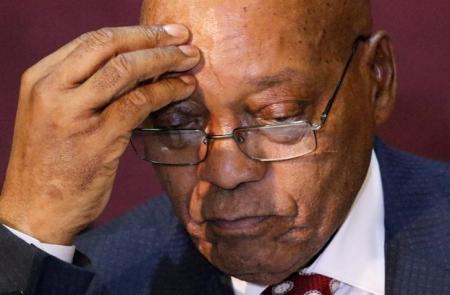
A South African court has annulled initial agreements the government reached with three countries to help it build nuclear power stations.
The deals with Russia, the US and South Korea were unlawful, the court ruled.
The government failed to hold public hearings and a parliamentary debate over its plans, it added.
Environmental groups said they welcomed the ruling, pointing out it came on the eve of the anniversary of the 1986 Chernobyl nuclear disaster.
The government has not yet commented on the ruling, in a case brought by the Earthlife Africa and the Southern African Faith Communities’ Environment Institute (SAFCEI).
Its plan to build eight nuclear plants at an estimated cost of around 1tn rand ($76bn; £59bn) has been dogged by controversy.
Critics fear the deal will be unaffordable and plagued by corruption, and suspect that Finance Minister Pravin Gordan was sacked by President Jacob Zuma last month because he had serious reservations about it.
“In the past few weeks citizens have demonstrated their willingness to mobilise against corruption and the capture of our state. The nuclear deal is at the centre of it all.” SAFCEI official Siphokazi Pangalele said in a statement.
Concerns about the affordability of the deal contributed to global rating agency Fitch’s decision on 7 April to downgrade South Africa to “junk status”.
The government says it needs new nuclear power stations to meet South Africa’s growing electricity demand, and to move away from relying on coal-fire plants. The country currently has one nuclear plant.
It had reached preliminary agreements with Russia, the US and South Korea to build eight more, AFP news agency reports.
Environmental groups say South Africa should rely more on renewable energy to meet its electricity needs.












